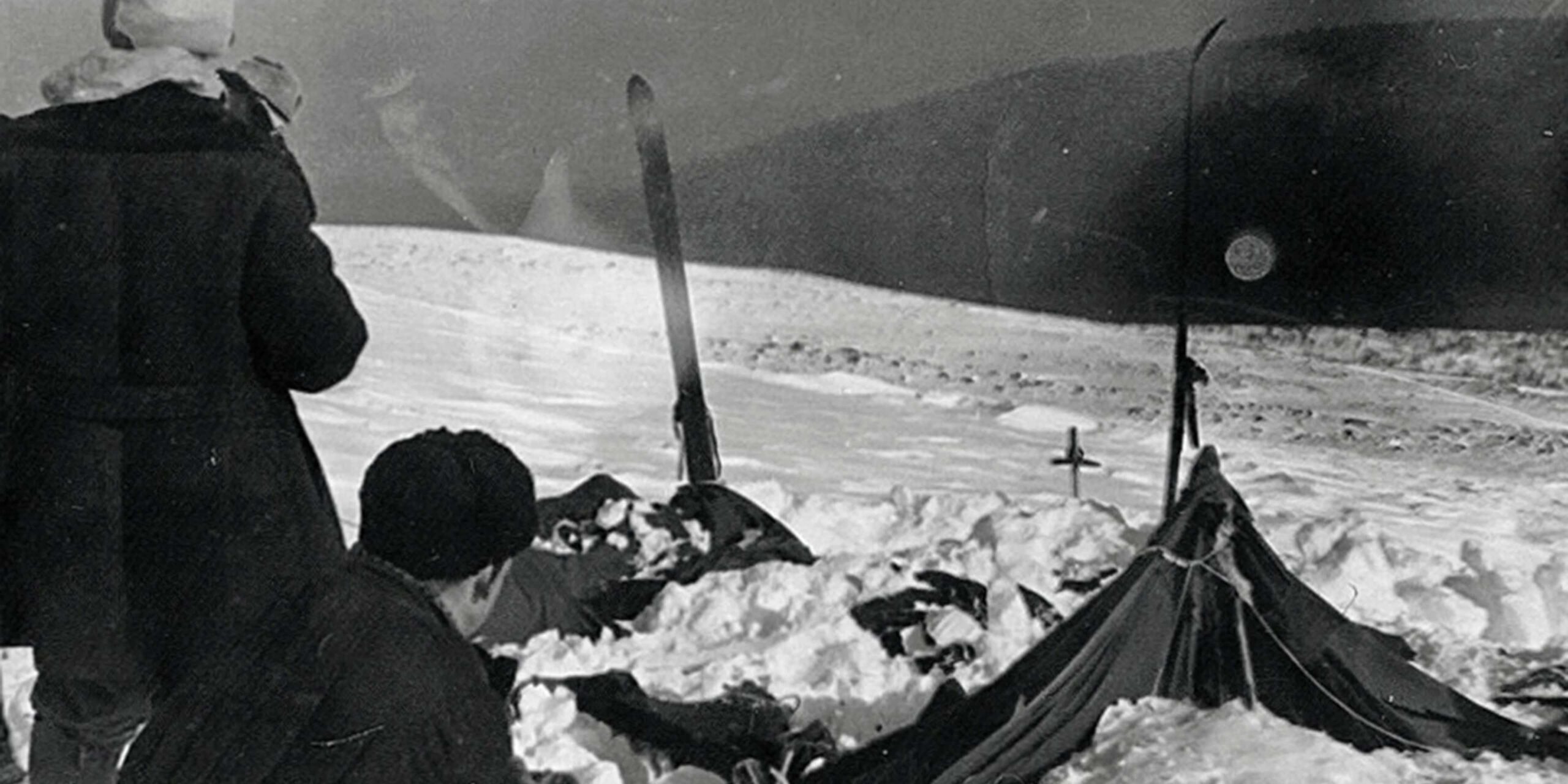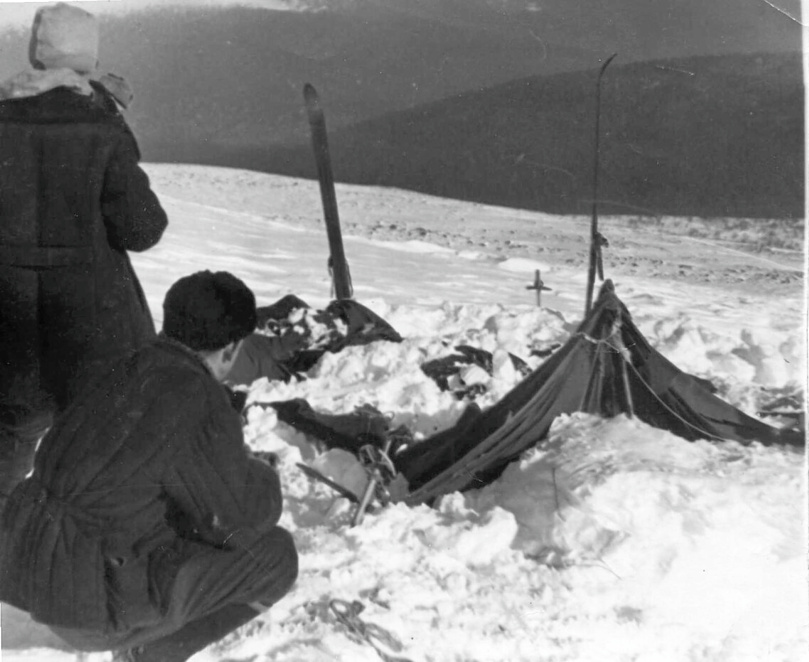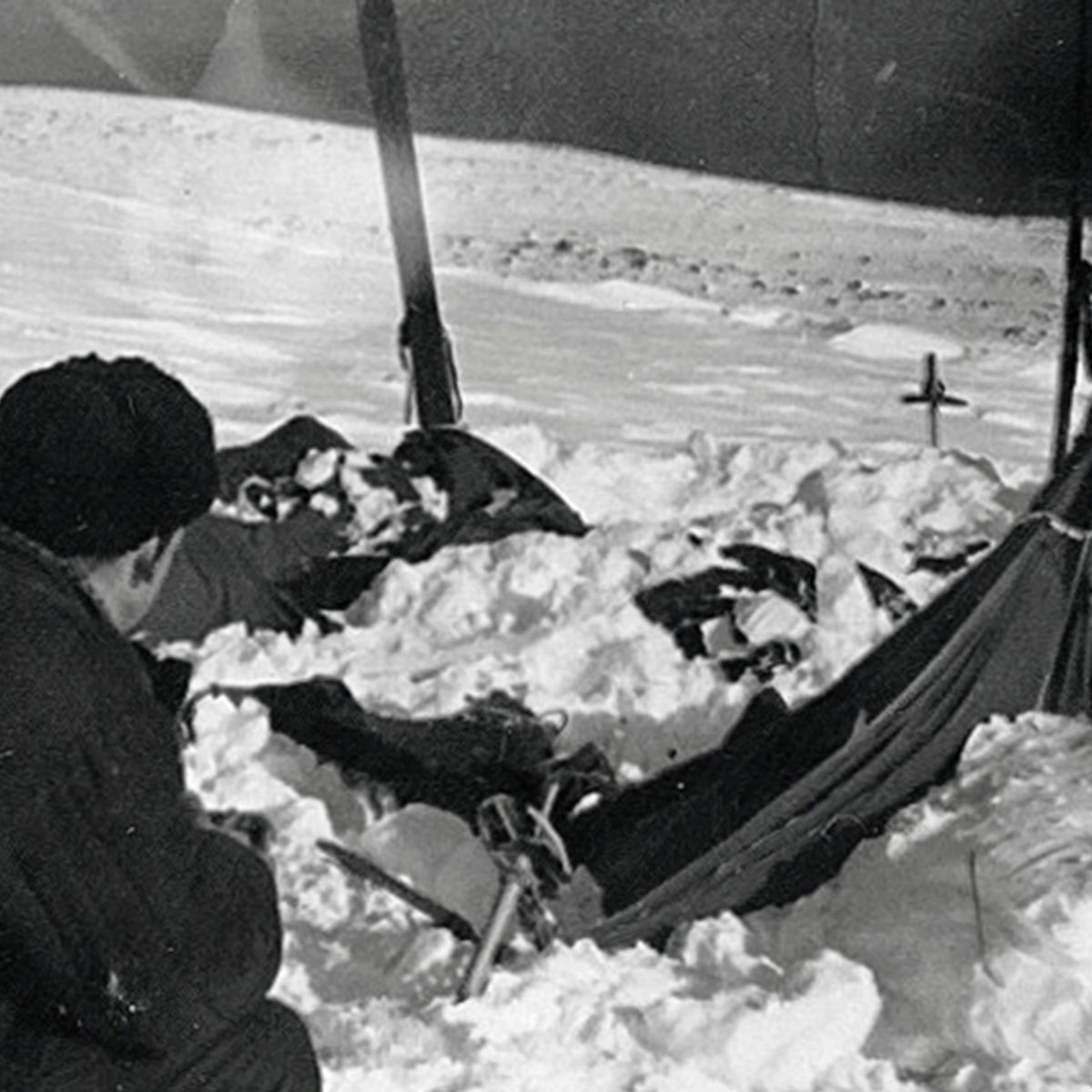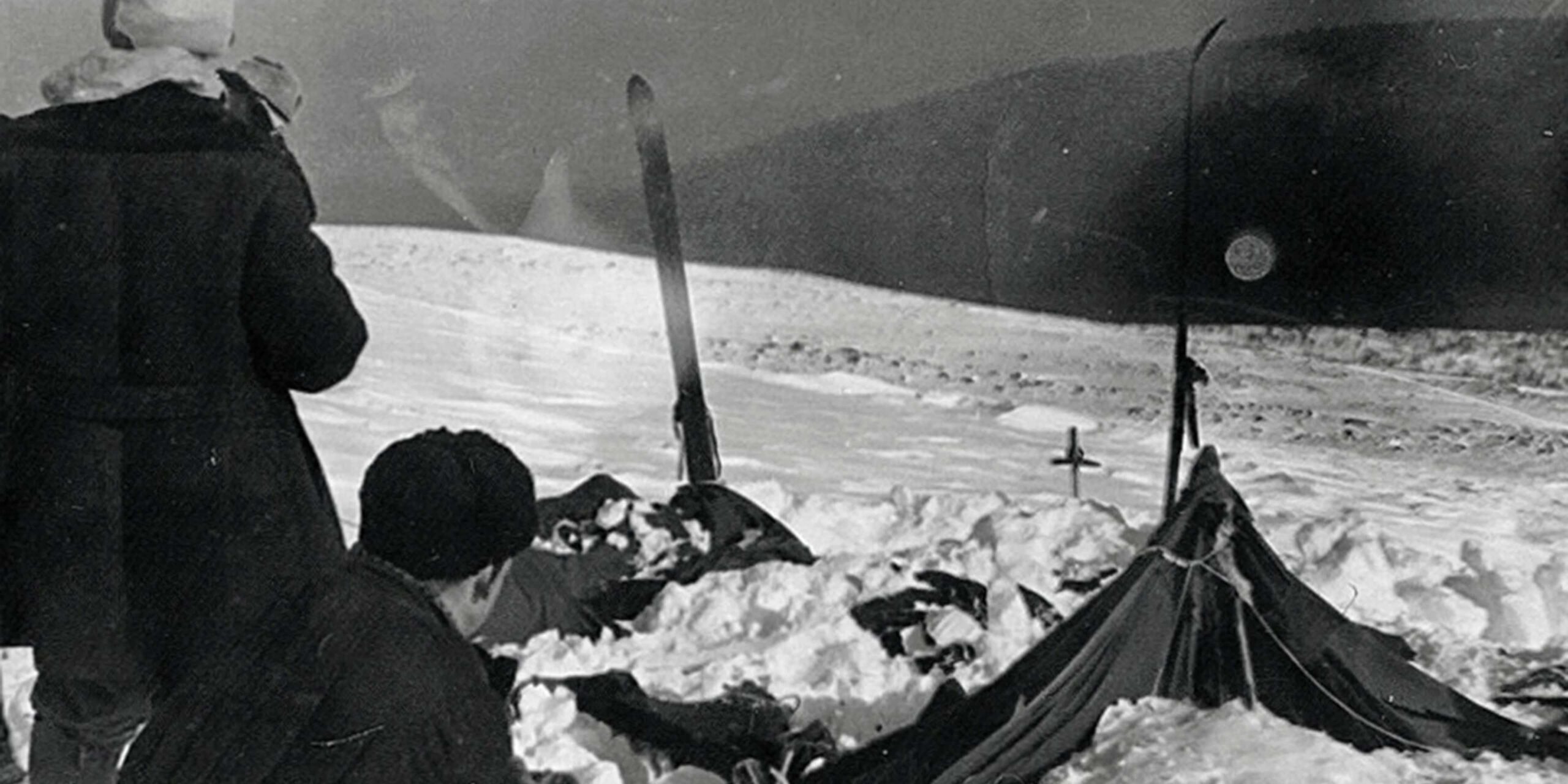The Ural Mountains have long been a landscape of rugged beauty and hidden secrets. In February 1959, these mountains became the backdrop for one of the most perplexing mysteries in modern history – the Dyatlov Pass Incident. Nine experienced Soviet hikers embarked on a seemingly routine expedition, but their journey would end in a nightmare that continues to baffle investigators and researchers decades later.

The abandoned tent that sparked decades of mystery. Credit: History.com
Igor Dyatlov led a group of eight fellow adventurers – all skilled mountaineers and students – into the unforgiving terrain of the northern Urals. Their expedition seemed typical of many winter hiking trips undertaken by experienced outdoor enthusiasts. Young, confident, and well-prepared, they documented their journey through photographs and diary entries that would later become crucial pieces of a complex puzzle.

Search party discovering the mysterious scene in 1959. Credit: DyatlovPass.com
On February 26, 1959, rescuers made a chilling discovery that would spark decades of speculation. The group’s tent was found mysteriously cut open from the inside, with evidence suggesting a panicked and hurried departure. Footprints in the snow told a haunting story – hikers had fled into the freezing night, some barefoot, wearing minimal clothing despite temperatures far below freezing.
When the bodies were eventually recovered, they presented a scene that defied logical explanation. Some hikers were found partially undressed, despite the extreme cold. Others bore strange injuries that seemed inconsistent with typical mountain survival scenarios. The official Soviet investigation concluded with the cryptic phrase “unknown compelling force” – a statement that only deepened the mystery.

Memorial photo of the nine victims who perished in the incident. Credit: Snopes.com
Researchers have proposed numerous explanations over the years. The avalanche theory suggests sudden environmental conditions might have triggered their desperate escape. Others point to potential infrasound phenomena, where low-frequency sound waves can induce extreme panic. Military testing in the region has also been suggested as a possible explanation, though concrete evidence remains elusive.
Beyond scientific explanations, the region is rich with folklore. Some locals speak of strange lights in the sky, ancient tribal warnings, and encounters with unexplained phenomena. While these stories cannot be scientifically verified, they add another layer of intrigue to an already complex narrative.
Decades have passed, yet the Dyatlov Pass Incident continues to captivate researchers, documentarians, and amateur sleuths worldwide. Multiple expeditions, including a notable Swedish-Russian collaboration in 2019, have attempted to unravel the truth. Despite advanced forensic techniques and extensive investigations, the complete story remains tantalizingly out of reach.
The incident serves as a haunting reminder of nature’s unpredictability and the thin line between rational explanation and inexplicable mystery. What truly happened on that cold February night in the Ural Mountains? The mountains keep their secrets, and the Dyatlov Pass Incident remains an unsolved puzzle that continues to intrigue and mystify.
References:
History.com – The Dyatlov Pass Incident – link
Snopes – The Dyatlov Pass Incident – link
DyatlovPass.com – The Search in 1959 – link
Categories: Historical Mysteries, Mountain Disasters, Soviet History, True Crime, Unexplained Phenomena, Unsolved Mysteries
Tags: cold case, Dyatlov Pass, Hiking Disaster, historical mystery, Mountain Horror, Paranormal, Russian Mystery, Soviet History, Unexplained Deaths, Ural Mountains
Religion: None
Country of Origin: Russia
Topic: Historical Mystery
Ethnicity: Russian


